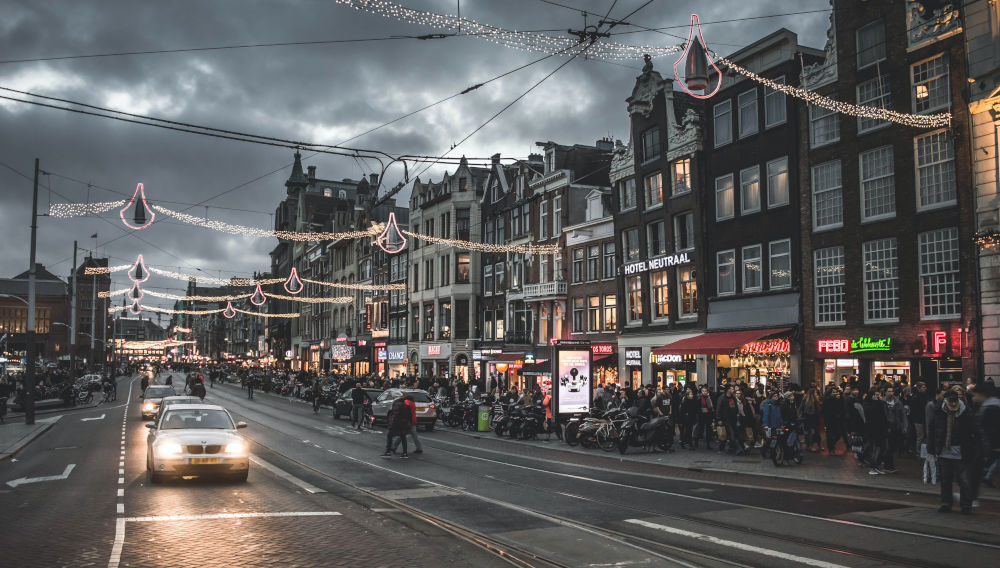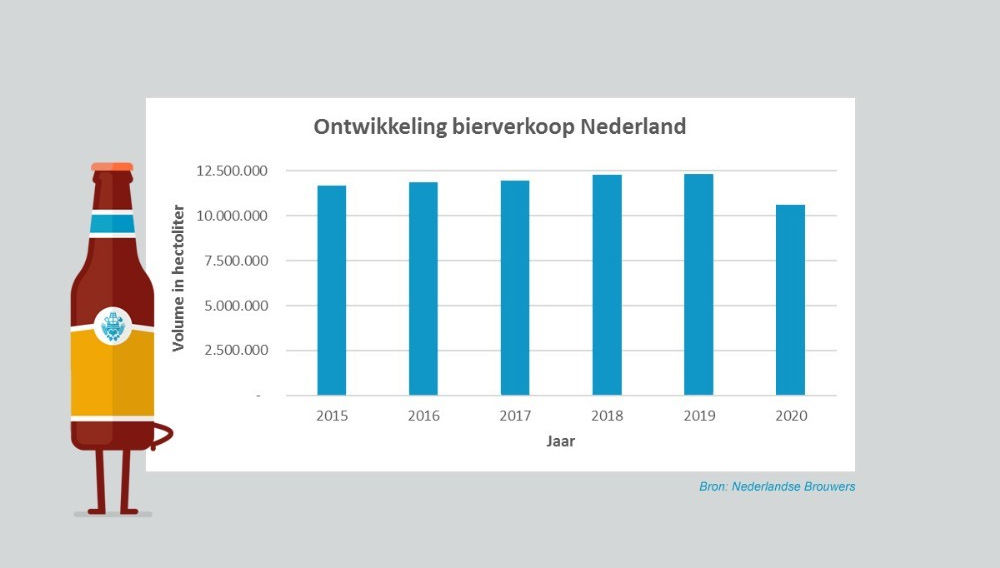Drinking al fresco: Dutch government eases lockdown restrictions
The Netherlands | After repeated threats from desperate publicans that they will reopen their venues regardless of the lockdown, the Dutch government relented. On 28 April 2021, outdoor terraces were reopened for guests from noon until 6 pm. Still, all sales of alcohol are prohibited from 8 pm until 6 am. This applies to hotels, takeout and delivery and all other outlets selling alcohol.
Brewers will heave a sigh of relief. As a result of covid restrictions, beer sales in the Netherlands dropped 14 percent in 2020 over 2019. In the hospitality sector, which was shuttered for most part of the year, the decline was even more pronounced: -58 percent. While people sat at home, off-premise sales rose by 5 percent. But this increase was not nearly enough to prevent beer sales from dropping nearly 2 million hl to slightly over 10 million hl.
Although publicans will have struggled to survive, major Dutch brewers stubbornly insisted on hiking beer prices for the on-premise in 2021. The on-premise represented 30 percent of domestic beer consumption before the pandemic. Heineken was the last of the big four brewers to raise prices from 1 May. Grolsch already put up its prices on 1 January, AB-InBev and Swinkels (Bavaria) followed on 1 April. There are, however, differences. Grolsch was not only the first, its beer prices rose the most at 4 percent. Heineken only put its price up by 2.8 percent, Dutch newspapers report.
Despite the crisis, more breweries
At the beginning of this year, the Netherlands registered 983 breweries. This is more than twice the number of five years ago, according to the Dutch Chamber of Commerce (KVK).
The Dutch beer brewing landscape is diverse. There are multinationals like Heineken, AB-InBev, Swinkels (Bavaria) and Grolsch, and plenty of “warm breweries” (that is small regional breweries with their own brewhouse), plus a long tail of probably hundreds of “laptop breweries”, as Rick Kempen of beer importer Bier&cO calls those that contract out their production.
Craft beer or speciaalbier?
Special beer sales came to 1.3 million hl in 2020, according to the Dutch Brewers Association. This figure includes Abbey beers as well as craft beers. “Craft beer” is not a common term in the Benelux countries. Dutch and Dutch-speaking Belgian beer drinkers prefer to use the term “speciaalbier” (specialty beer) for any beer that has a higher alcohol percentage than pilsener and a more pronounced taste. All the smaller breweries combined account for an estimated market share of 3 percent to 5 percent in the Netherlands.
Many think that the number of breweries will have plateaued in 2020. Regional beers are still gaining ground on lager, though. Supermarkets have cleared shelf space to stock a greater variety of beer brands in recent years, observers say.
Keywords
craft beer international beer market beer sales The Netherlands Europe COVID-19 domestic beer market craft beer market
Authors
Ina Verstl
Source
BRAUWELT International 2021


